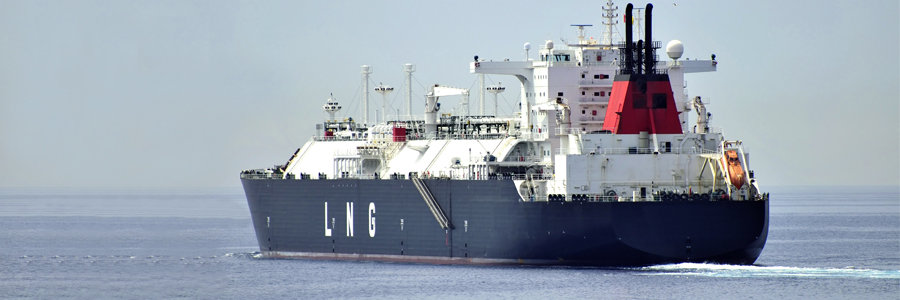Along with introducing strict EU environmental regulations to counteract air pollution in harbour cities, the maritime and transport industries in the Baltic Sea region turn towards alternative fuel and energy sources to reduce harmful emissions. The Interreg project Go LNG explores the demand and accessibility of Liquefied Natural Gas (LNG) as one of alternative fuels that leads to cleaner shipping.

© PantherMedia / Carabay
Liquefied Natural Gas: towards cleaner shipping
The Baltic Sea waterways experience high density of traffic which increases air pollution. In order to decrease further pollution, a coordinated response and shift of ship and ferry operators towards more environmentally friendly fuel alternatives, followed by favorable conditions created in harbours, is required.
Liquefied Natural Gas (LNG) is the cleanest fossil fuel; it has no colour or smell, and it emits less CO2, nitrate oxides and sulphur than coal or oil. LNG has already been recognised by Baltic Sea countries as a valuable source of energy, in line with the EU Clean Fuel Strategy and the EU Directive on Deployment of Alternative Fuel Infrastructure. There is, however, a bottleneck related to common use of this cleaner energy alternative: high price of setting up the infrastructure and its accessibility. In response to that, 18 partners from six Baltic Sea countries joined forces in the Go LNG project in order to overcome the technology and infrastructure challenges, unlock business opportunities and make shipping in the Baltic Sea cleaner.
Time to act
Within the Blue Corridor Strategy for the Baltic Sea region, the project helps shape a strategic approach for the development of the LNG infrastructure. The LNG competence centre triggers research activities and promotes knowledge increase on the LNG technology among business representatives and policy makers.
The project also establishes a Baltic LNG Cluster to link national institutions and business structures essential to ensuring effective development of the LNG infrastructure. The cluster combines expertise, know-how and available resources in LNG for transport in order to steer new businesses and offer new solutions for LNG users.
“In order to facilitate LNG infrastructure development, we need to follow the world LNG industry growth and be ahead of them,” stresses Andrius Sutnikas, Go LNG Project Coordinator in Klaipeda Science and Technology Park. He proves that transnational cooperation within the framework of Interreg is a means to explore new terrain and test new approaches. “Interreg creates a platform where you can start up. It brings different expertise, different actors together to enable your activities; in our case it’s LNG,” says Andrius. He points out the approach of people in the projects should be to think local, but act global. Although Interreg sets the partnership within the Baltic Sea region, it does not limit the activities; to the contrary, these should reach beyond the region to get inspiration, share know-how and build up businesses.
The interview
Watch the interview with Andrius Sutnikas, Go LNG Project Coordinator in Klaipeda Science and Technology Park, who explains how the Interreg springboard enables to think local but act global.
GoLNG project entry in Interreg Baltic Sea Region project library
GoLNG project website






